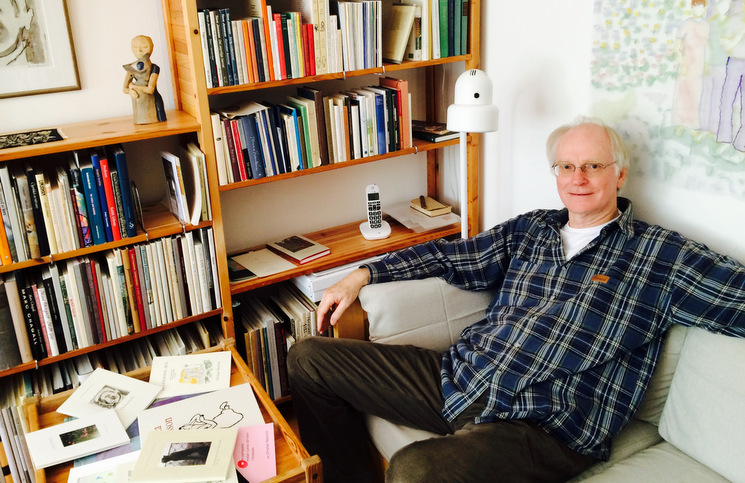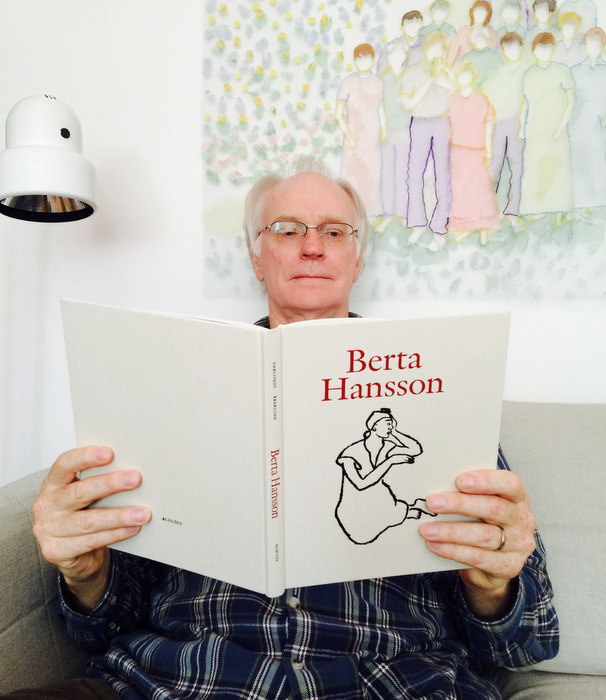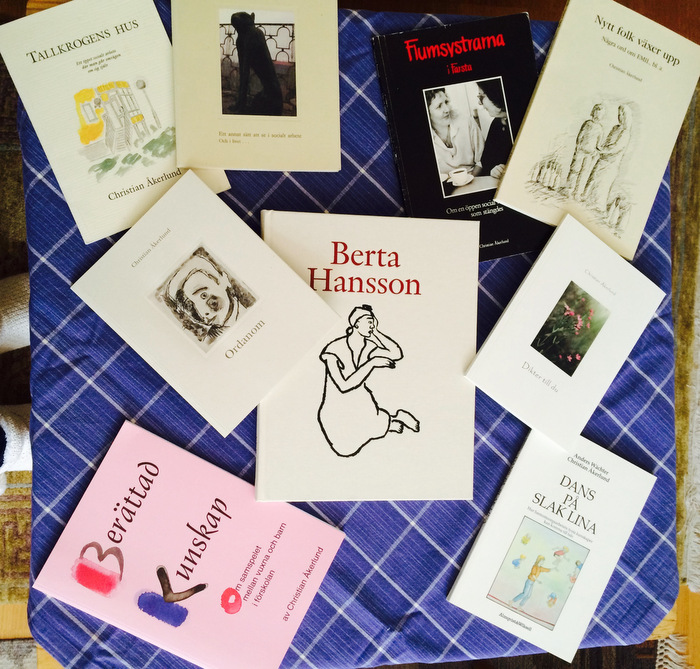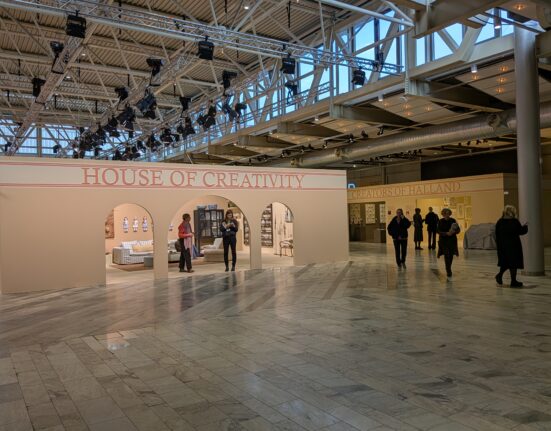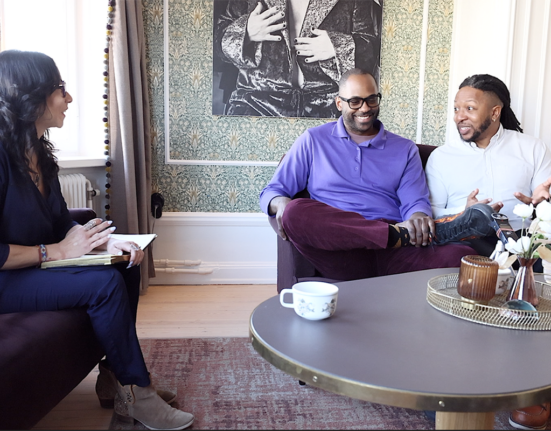Psychologists have a professional training and clinical skill to help people learn to cope more effectively with life issues and mental health problems. They work with individuals, families and groups. Most people who initiate counseling do not have a serious mental illness. They have life challenges or are going through difficult life-cycle transitions that may be taxing their current ability to cope. Counseling during these times can be quite helpful in coping with such life challenges. Ultimately, it is an invaluable investment in your emotional, physical and mental health, an act of courage not weakness, and a gift to those whose lives they touch.
I can say that after a very interesting interview with psychologist Christian Åkerlund I felt more myself and more confident than before. And that was just a simple conversation. I can only imagine how patients feel after regular meetings with their psychologists.
Christian Åkerlund was born in the south of Sweden, in Ängelholm, was educated in Lund and has worked as a psychologist for 40 years. He is living in Stockholm, and has been working with mentally ill people, with individual- and family therapy and with pre-school and school children.
How many books have you written?
Eight books, and one art biography with my wife. I have published two books about child care (Berättad Kunskap 2003, Dans på slak lina 1990), four books about social work (Nytt folk växer upp 1988, Flumsystrarna i Farsta 1990, Tallkrogens Hus 1995, Ett annat sätt att se i socialt arbete och i livet 2005), two volumes of poetry (Ordanom 1997, Dikter till du 2014) and the art biography about Berta Hansson (2010).
Tell me about your writing journey? Which is your favorite book from all you have published?
Dikter till du, the love poems to my wife. When you are in love it feels natural to write love poems. Since I met her 38 years ago I have written many poems to her, and this is a collection of all those poems. In a short text message she sent me some years ago she wrote: ”Jag älskar till du”, which is deeply more intimate than the ordinary expression ”Jag älskar dig”. What does this title mean? Well, there are things in life that are beyond words, and I can’t explain why the expression ”Jag älskar till du” moves my heart in a very special way. Anyway, it was the starting point for my collection of love poems to her.
What do you think makes a good story?
Something that moves my heart.
Why did you choose this career path?
I didn’t choose it. It chose me. I was about to be a mathematician, but I couldn’t stand that my elder sister was brighter than me. And another sister of mine had serious problems since she was a child, which very much influenced my decision of becoming a psychologist.
What is your greatest strength as a therapist?
I think it is the capacity to listen.
What is your experience and how long have you been treating patients?
Since I was 26 years old. Really, I was too young. I didn´t have much experience of life in those days.
How long does each counseling session last? How often do you meet your patients?
45 minutes to an hour, once or twice a week. But I have also been treating families, and then we usually have longer meetings, an hour and a half. But most of my working life I have had consultations with staff members and teachers about children and pupils, with the aim of helping them understand the children better.
Is there something you dislike about your job?
Maybe that it takes so much of your inner energy so there’s not much left for your family.
What major disappointments/failures have you had in your field work?
When I began as a psychologist we all thought that most problems were psychological. We didn’t understand what we now call neuropsychiatric problems. We ignored that a child’s certain misbehavior could be due to genetic factors. We didn’t know at that time that there are people with character disorders such as ADHD and autism, Asperger, and the like. This led to great mistakes. When we finally learned about neuropsychiatry it was a big crisis for me personally, thinking back on all the children and adults that I had misunderstood.
What is the most challenging part of your job?
That we don’t have enough time to meet the needs of every child that we come into contact with. That is very frustrating. And that there isn’t enough time to help teachers understand their pupils’ problems, and to help parents understand their children.
What is a common misconception people have about what you do?
I would say that people may think that I’m a sort of a mental engineer. But it is not an engineering sort of work, it’s a humanistic work. It’s about our hearts and souls.
Is there anything that you would like people to know about what you do?
I have been working half-time as an author and poet, and the other half as a psychologist. These two types of work have much in common. Poetry, literature and art have the deepest knowledge about people’s minds. Art, literature and poetry tells us at a deeper level what it means to be a human being. What it means to live. And to love. I have been fighting all my life with this, because we live in a society with a conception that we are more like robots. And this creates a mental climate that leads to people thinking of themselves as robots.
Anyhow, life is so much deeper than psychology books can tell. When I began as a psychologist after my university studies, I had to start all over again. The books weren’t of much help. So I started to observe and learn from people who really knew; mental health workers, child care nurses, teachers and so on. Some of them had a knowledge that you never can learn from books. We call it tacit knowledge. This is why my own books about child care and social work always starts from stories they’ve told me from their work, and then go on to reflections based on these stories. And I often build these reflections from poetry, literature and art, because they inspire our hearts and teach us how to meet people at a really human level.
Which was the last book you read?
The Bible. And books about the Bible. But this is not my only reading. I also read poetry almost every day. I read the Bible because it has such a deep and inspiring knowledge of what it means to be a human being. And what it means to love. Unfortunately many people have no idea about this. They think that the Bible is something we no longer have to read. They have the opinion that it is all fairy tales, that science has now replaced.
If you could be another person for an entire day, who would it be and why?
I have read many books of a monk from Belgium who lived in Sweden since 1967, Wilfrid Stinissen. It would be fascinating to live his life in a monastery for some time. It would also be an experience to be a poet like for example Wislawa Szymborska or Tomas Tranströmer, two Nobel Prize winners that I love to read and to learn from.
What is your favourite quote?
I would quote the device of the archbishop of Sweden: Gud är större (God is greater).
What were you like when you were a teenager?
I played chess and read poetry. And I didn´t really know anything about the world.
What are your weaknesses?
I am not loving enough, because with love, it can never be enough. And then I also have a tendency to delay things.
Do you have any questions for me?
Oh yes. I am curious about your writing. And why you came to Sweden.
What advice would you give to the actual society, as we know that the mental disorders are increasing (Major Depression, Bipolar Disorder, Panic Disorders, etc)?
I would say: Do not treat people like machines that will work for you, slaves that will work for you! Treat and meet people like human beings! With love!







